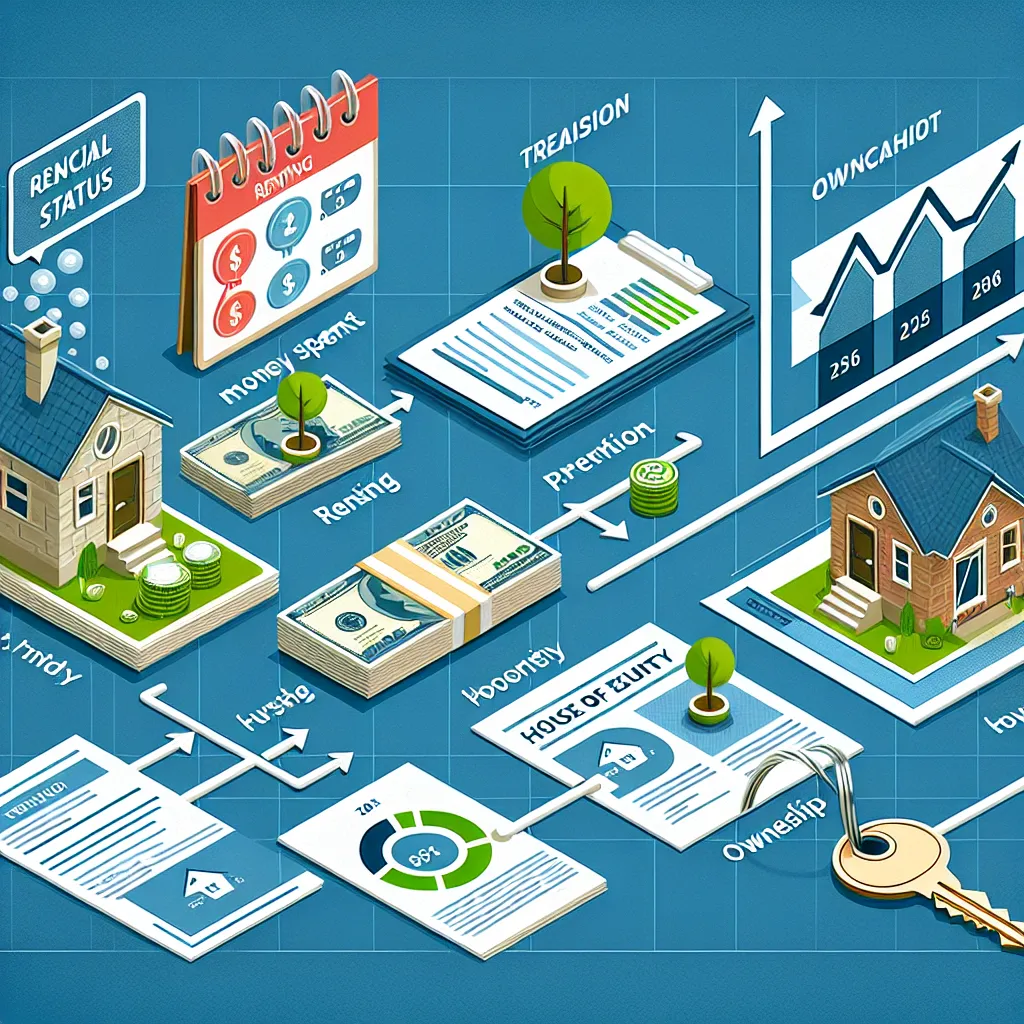Rent-to-Own Homes: Bridging the Gap to Homeownership

Rent-to-own homes offer an intriguing solution for those who dream of owning a home but aren’t quite ready to commit financially. Imagine living in your future home today, while you save up for the down payment or improve your credit score. The rent-to-own process combines the benefits of renting with the end goal of purchasing the property, making it a unique pathway to homeownership.
Understanding Rent-to-Own Homes
What Are Rent-to-Own Homes?
Rent-to-own homes are properties where tenants have the option to purchase the home after a certain period. Unlike traditional renting, a portion of the rent paid may count towards the future down payment of the house. This setup allows potential buyers to gradually build equity while living in the property.
Lease-Option vs. Lease-Purchase
The two primary types of rent-to-own agreements are lease-option and lease-purchase:
- Lease-Option: This contract gives you the right, but not the obligation, to purchase the home at the end of the lease term. If you choose not to buy, you can walk away without further obligations.
- Lease-Purchase: This agreement requires you to buy the property when the lease term ends. This can be binding and often necessitates securing financing.
Benefits of Rent-to-Own Homes
Gradual Financial Preparation
Rent-to-own homes are ideal for those who need time to save for a down payment or improve their credit scores. By living in the property, you can experience the home and community before fully committing.
Building Equity
With each rent payment, a portion may be credited towards the purchase price. This means you’re not only paying for your stay but also investing in your future home.
Locking in Purchase Price
Many rent-to-own agreements allow the purchase price to be locked in at the start of the lease. This can be advantageous in rising markets, allowing you to buy at a lower price than the market value at the end of the lease.
Flexibility and Control
Rent-to-own agreements often provide more flexibility and control compared to traditional renting. You can negotiate terms, explore the neighborhood, and have the option to walk away if it doesn’t feel right.
Steps to Secure a Rent-to-Own Home
1. Understand the Contract
Before signing, ensure you understand whether it’s a lease-option or lease-purchase agreement. This distinction will affect your obligations at the end of the lease term.
2. Agree on the Purchase Price
The contract should specify the purchase price and how it will be determined. This can be a fixed price agreed upon at the start or based on the market value at the lease’s end.
3. Negotiate the Terms
Discuss and negotiate terms such as the option fee, maintenance responsibilities, and how rent payments will contribute to the down payment.
4. Conduct Due Diligence
Perform thorough research on the property, including an independent appraisal and inspection. Ensure the property taxes are current and there are no liens.
Case Study: Rent-to-Own Success in Saudi Arabia
Consider Sara, who found her dream home in Riyadh through AnySqft. With a rent-to-own contract, she could move in right away and work towards owning the property. Over three years, part of her rent contributed to her down payment, and she locked in a favourable purchase price despite market increases. AnySqft’s AI-driven platform made the process seamless, providing personalized recommendations and expert assistance.
Tables and Graphs: Understanding Rent-to-Own Payments
| Month | Rent Paid (SAR) | Portion Towards Purchase (SAR) | Total Towards Purchase (SAR) |
|---|---|---|---|
| 1 | 10,000 | 2,500 | 2,500 |
| 2 | 10,000 | 2,500 | 5,000 |
| 3 | 10,000 | 2,500 | 7,500 |
| … | … | … | … |
| 36 | 10,000 | 2,500 | 90,000 |
The graph below illustrates how rent payments build equity over time:

FAQs: Addressing Common Questions
What if I can’t buy the home at the end of the lease?
With a lease-option agreement, you can walk away without further obligation. However, in a lease-purchase agreement, you may be legally required to buy the home.
Can I negotiate the terms of the rent-to-own agreement?
Yes, it’s crucial to negotiate terms that work for you, including the purchase price, option fee, and maintenance responsibilities.
What should I look for in a rent-to-own contract?
Ensure the contract specifies the purchase price, how rent payments contribute to the down payment, and your responsibilities regarding property maintenance.
Conclusion
Rent-to-own homes offer a flexible, gradual path to homeownership. They bridge the gap for those not yet financially ready to buy outright, allowing them to build equity and secure a future home. By understanding the terms and conducting due diligence, you can make an informed decision that aligns with your financial goals. With platforms like AnySqft, navigating the rent-to-own process becomes a seamless and personalized experience.
